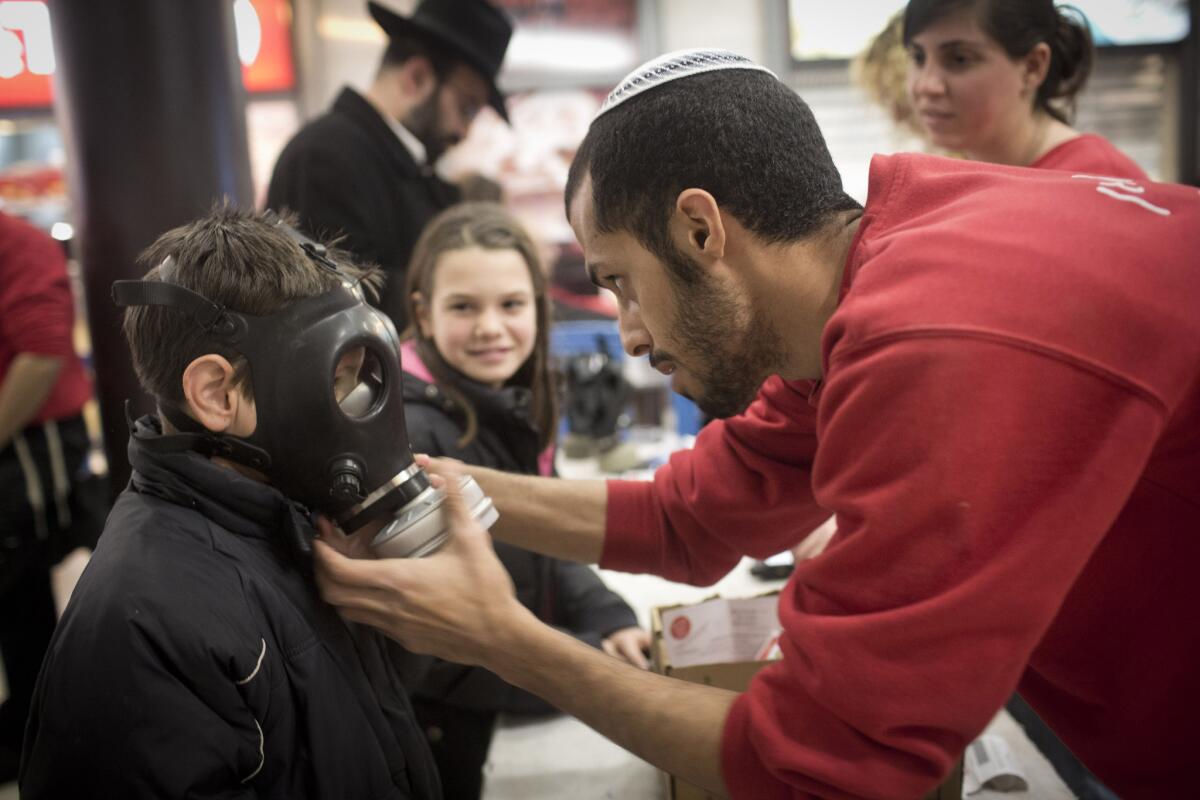Israel to stop distributing gas masks to civilians

- Share via
JERUSALEM -- With the dismantling of Syria’s chemical weapons underway, Israel will halt distribution of gas masks to civilians next month, the government announced Sunday.
The decision came following an assessment by Israel’s defense establishment that there has been a “significant decline in the threat of chemical weapons being fired at Israel,” a government statement said
According to the statement, limited production of gas masks will continue, with the protective gear being earmarked for use by emergency forces.
Israel’s government first started distributing protective kits to its citizens ahead of the 1991 Gulf War and has periodically refreshed them, replacing gas masks and other components intended for use during a chemical weapons attack. Israelis were lining up for gas masks as recently as last summer.
Currently, about 60% of Israelis have the latest versions of the kits. The government has said it lacks the budget for the manufacture, maintenance and distribution of the kits for the rest of the population.
After weighing the necessity and cost of providing the entire population with personal protection, the defense establishment decided to halt distribution of the kits beginning next month and evaluate the situation again at the end of 2014, the government statement said.
In addition to the reduced threat from Syria’s chemical arsenal, Defense Minister Moshe Yaalon cited Israel’s “extraordinary offensive and defensive capabilities” as allowing the decision. These, the minister said, deter others from attacking Israel with unconventional weapons, “as the price for that would be too heavy.”
Although it believed to possess chemical weapons of its own, Israel has never admitted to having such stockpiles and maintains the same policy on the matter as it does on nuclear issues: vagueness.
Israel signed the international treaty banning chemical weapons in 1993 but did not ratify it.
In recent months, Israeli officials have deliberated a possible change of policy, with some suggesting that the country would consider joining in the international ban.
Although several defense officials reportedly favored joining the treaty, in late October the security Cabinet decided to stick with the current policy, not ratify its treaty signature and stay vague on the matter, according to Israeli media.
Sobelman is a news assistant in The Times’ Jerusalem bureau.
More to Read
Sign up for Essential California
The most important California stories and recommendations in your inbox every morning.
You may occasionally receive promotional content from the Los Angeles Times.










